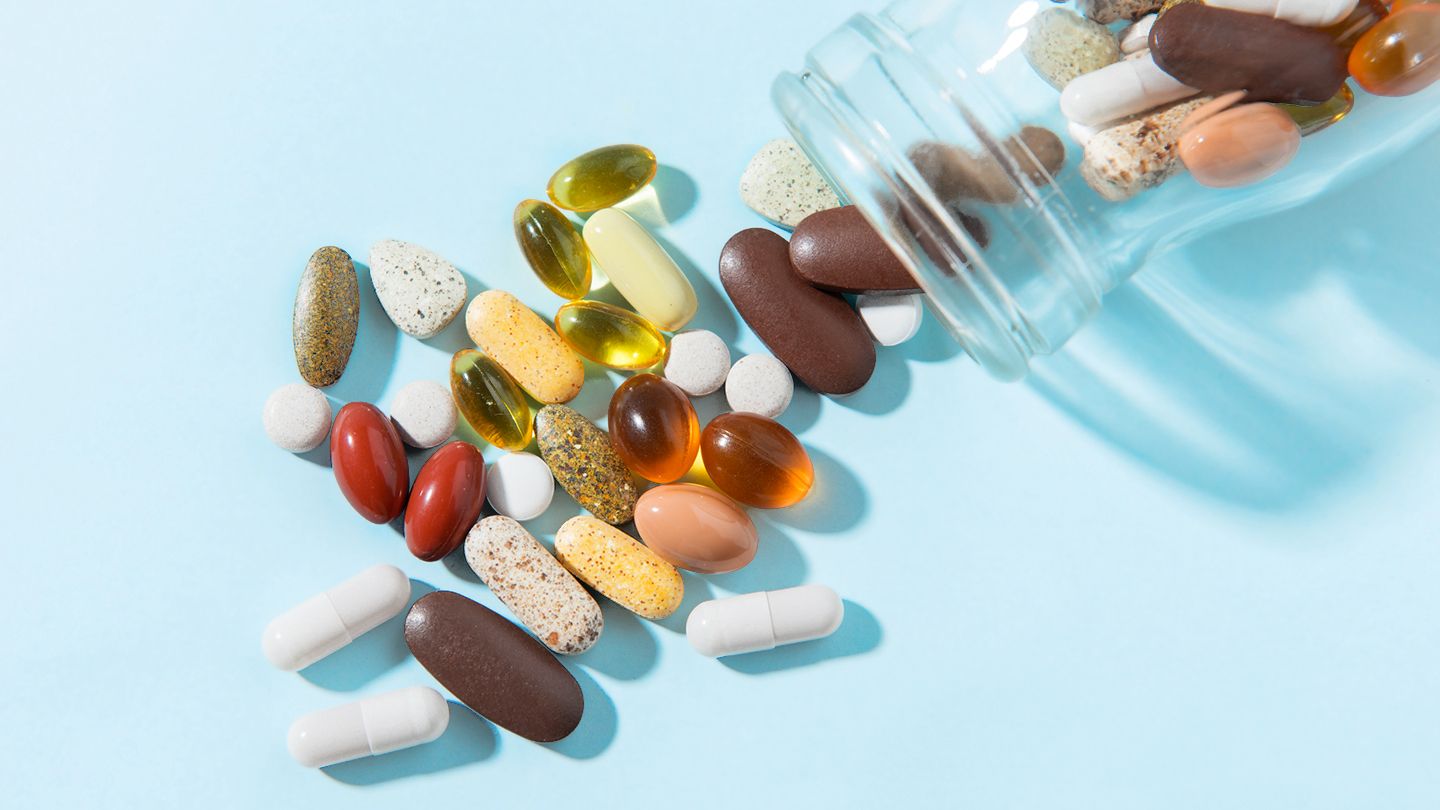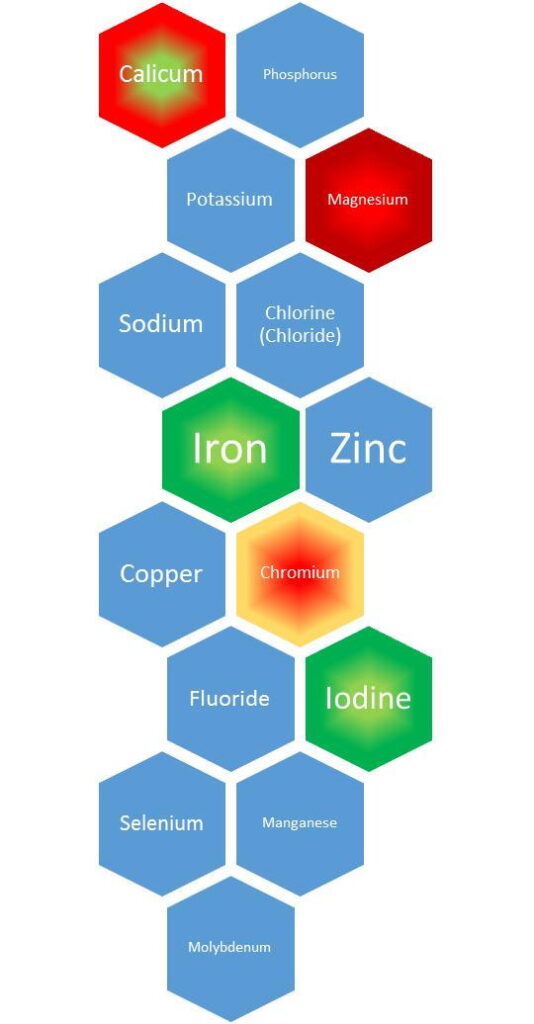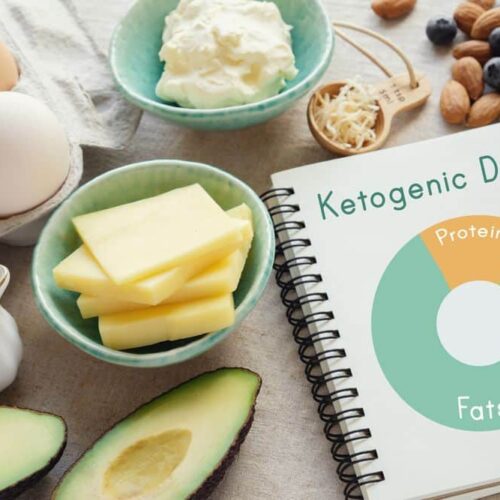Are you aware of the vital role that minerals play in sustaining your overall health and well-being? These micro-nutrients are the unsung heroes of our bodies, quietly working behind the scenes to ensure our physiological processes run smoothly.
From calcium and iron to zinc and magnesium, these minerals are the building blocks of life, affecting everything from our bones and muscles to our immune system and energy levels.
If you have ever felt unexplained fatigue or had frequent muscle cramps, then the answer might lie in these essential minerals.
Understanding the significance of these minerals is not just a matter of general knowledge; it is a key to optimizing your health and quality of life.
Imagine having the knowledge to make informed dietary choices that empower your body to function at its best.
So, are you ready to embark on a journey to discover the importance of these essential minerals?
What are minerals?
Dietary minerals are essential inorganic substances naturally present in the foods and beverages we consume. These minerals are crucial for various physiological functions and for the overall health and well-being of the human body.
Minerals typically form only 5% of the typical human diet but are crucial for normal health and function 1. The health authorities have given daily allowances of all the vital minerals and recommend that people should aim to meet 100% of them through a healthy eating pattern and supplemental form (if required).
Let’s have a look at all the minerals that we need, along with the reason why they are considered important.
Functions of Minerals
Let’s have a detailed understanding of the role of each mineral in the body.
Calcium
This most abundant mineral in the body is primarily stored in bones and teeth, making it crucial for their structure and strength. Maintaining adequate calcium levels is necessary to prevent conditions like osteoporosis.
We need calcium for proper muscle contraction 2. Low calcium levels are associated with muscle weakness and frequent cramping.
Calcium plays a key role in transmitting nerve impulses and ensuring they are relayed correctly from one nerve cell to another.
It aids in blood clotting and stops bleeding during injuries and wounds.
Calcium is involved in various enzymatic reactions where it acts as a cofactor.
Calcium plays a role in regulating the heartbeat and maintaining normal cardiac function. It helps with the contraction of the heart muscle, which is essential for pumping blood throughout the body.Phosphorus
Phosphorus is involved in the breakdown and utilization of carbohydrates, proteins, and fats. It is a critical component of enzymes that facilitate these metabolic processes.
Phosphorus, along with calcium, is a crucial component of bone and tooth structure. It supports a strong bone density and contributes to the strength and integrity of our bones.
It also acts as a buffer and helps regulate the pH balance of body fluids.
Phosphorus is an elemental part of nucleic acids, including DNA and RNA, responsible for carrying and transmitting genetic information.
Our body also uses phosphorus in nerve function and the transmission of nerve signals.
It is involved in the process of muscle contraction, and an imbalance in phosphorus levels can affect muscle strength and coordination 3.Magnesium
Magnesium is paramount for muscle contraction and relaxation. It helps muscles function properly and prevents muscle cramps and spasms. Athletes and active individuals often choose magnesium supplements to support muscle performance.
It is essential for normal neurological function and may diminish the incidence of neurological disorders 4.
Magnesium is critical for maintaining a regular heartbeat. It helps the heart muscles contract correctly and supports the cardiovascular system. Adequate magnesium intake may minimize the risk of arrhythmias and lower blood pressure.
Magnesium functions with vitamin D and calcium to keep our bones strong and healthy.
It acts as a cofactor during energy production and supports energy metabolism.
Magnesium helps regulate blood sugar levels by influencing insulin action. Hence, maintaining adequate levels may reduce the risk of insulin resistance and type 2 diabetes.
This mineral also supports the function of the immune system by aiding in the production and activation of immune cells.
Studies suggest that magnesium may also help relieve stress and anxiety by affecting the release of stress hormones and neurotransmitters.Sodium
In addition to potassium and chloride, sodium is one of the body’s primary electrolytes. It helps regulate blood volume and the concentration of electrolytes in the body, which is critical for proper cell function.
Proper sodium balance is crucial for maintaining healthy blood pressure levels. It helps control blood volume, and changes in sodium levels can lead to shifts in blood pressure.
We need sodium for the secretion of stomach acid, which is necessary for digestion and nutrient absorption.
Sodium plays a vital role in transmitting nerve impulses throughout the body. It is essential for muscle contraction, reflexes, and all other aspects of nervous system function.Iron
Iron’s most common and primary role is to prevent iron deficiency anaemia 5.
Iron is an important segment of haemoglobin, which attaches to oxygen and takes it through the bloodstream to various tissues and organs.
It also supports the production and function of immune cells and helps the body defend against infections.
Iron is necessary for the synthesis of DNA, the genetic material in cells. This is crucial for cell growth, division, and repair.
Iron deficiency can lead to brittle nails, hair loss, and pale skin, as it is involved in collagen production.
Adequate iron levels in the body can help reduce fatigue and increase overall energy levels.Potassium
Potassium is crucial for proper muscle contraction and function. Adequate potassium intake supports proper muscle function, which is essential for overall mobility and cardiac health 6.
It aids in conducting electrical signals within the nervous system, vital for sensory and cognitive function.
Adequate potassium intake is linked with a reduced risk of hypertension and cardiovascular diseases as it counteracts the effects of sodium in the body by helping to relax blood vessel walls and lower blood pressure.
Potassium, along with sodium, helps regulate the body’s fluid balance.
Potassium is essential for kidney and bone health.
Adequate potassium intake can help prevent muscle cramps and spasms, particularly during physical activity or hot weather when the body loses potassium through sweat.Zinc
We need zinc for our immune system to function properly. It helps activate and support the function of immune cells, such as T cells, natural killer cells, and macrophages, which fight off infections and protect the body from diseases 7.
It assists in collagen production, which is essential for repairing damaged tissues, wound healing and forming new blood vessels.
Zinc plays a key role in DNA synthesis and cell division.
Zinc possesses antioxidant properties and helps protect cells from oxidative damage caused by free radicals.
We need zinc to produce and regulate various hormones, including insulin, thyroid and sex hormones.
Adequate zinc levels are indispensable for maintaining healthy skin, sensory functions, and eye health.
Zinc is also involved in the production of healthy sperm in males and supports various reproductive processes in females.Selenium
Selenium has potent antioxidant properties, which protect us from free radicals and oxidative damage.
It supports the production and activation of immune cells and helps the body respond effectively to infections and diseases.
Selenium is essential for producing thyroid hormones, which are crucial for regulating metabolism and energy production 8.
Selenium may help improve heart health by decreasing inflammation, supporting blood vessel function, and reducing oxidative stress.
It is also necessary for healthy sperm production. Selenium plays a role in sperm motility and quality, which can impact male fertility.
Adequate creatine intake promotes healthy hair and nails. It can help reduce brittleness and improve their overall condition.Copper
We need copper for the formation of red blood cells. It helps in the absorption and utilization of iron, which is crucial for synthesizing haemoglobin.
Copper provides immune system support by activating the immune cells, such as neutrophils and macrophages.
It plays a major role in developing and maintaining the central nervous system by stimulating the synthesis of neurotransmitters.
Copper plays a role in bone strengthening. It supports bone mineralization by facilitating the incorporation of minerals like calcium and phosphorus into the bone structure 9.
Our body utilizes copper to form and maintain connective tissues, such as collagen and elastin.
It serves as a co-factor for various enzymes in the body.
Copper helps regulate the balance between iron absorption and storage in the body.Manganese
Manganese is a cofactor for various enzymes that act as antioxidants and facilitate metabolic processes, contributing to the body’s energy production and overall functioning.
Manganese plays a role in forming and maintaining healthy bones and connective tissues.
We need this mineral for the synthesis of blood clotting factors.
Manganese is vital for healthy reproductive tissues and supporting fertility in both males and females.
It helps regulate neurotransmitters and may play a role in cognitive function.
Manganese is important for the wound-healing process. It aids tissue repair and can promote faster healing of injuries and surgical wounds.
Adequate manganese intake may contribute to preventing osteoporosis by supporting bone health and reducing the risk of bone-related conditions.Molybdenum
This trace mineral serves as a cofactor for several enzymes, particularly involved in converting nutrients into energy.
Molybdenum supports detoxification and helps the body eliminate harmful compounds by transforming them into more readily excreted forms.
It helps in the activation of certain enzymes.
While molybdenum is required in only trace amounts, it is important for normal human growth and development. Molybdenum deficiency can lead to health issues and developmental problems.Iodine
Iodine is essential to thyroid hormones, including thyroxine (T4) and triiodothyronine (T3). These hormones are critical for regulating the body’s metabolism, energy production, and the functioning of nearly all tissues and organs 10.
It is essential for proper bone and brain development during foetal development and early childhood.
Adequate iodine intake is important for maintaining cognitive function.
Iodine contributes to the body’s defence against infections and diseases by supporting the production of immune cells and promoting immune responses.
Iodine has natural antimicrobial properties and is used in medical settings as an antiseptic for wound cleaning and the prevention of infections.Chromium
Chromium is well-known for its role in blood sugar control. It enhances the action of insulin and is particularly critical for people with diabetes or those at risk of developing diabetes.
Chromium plays a role in carbohydrates, fats, and protein metabolism. It helps the body convert these macronutrients into energy and contributes to overall metabolic function.
Chromium may help reduce total cholesterol levels, LDL cholesterol and triglycerides while increasing HDL cholesterol.
Athletes and bodybuilders popularly use chromium to enhance muscle development, reduce body fat, and improve exercise performance.



















